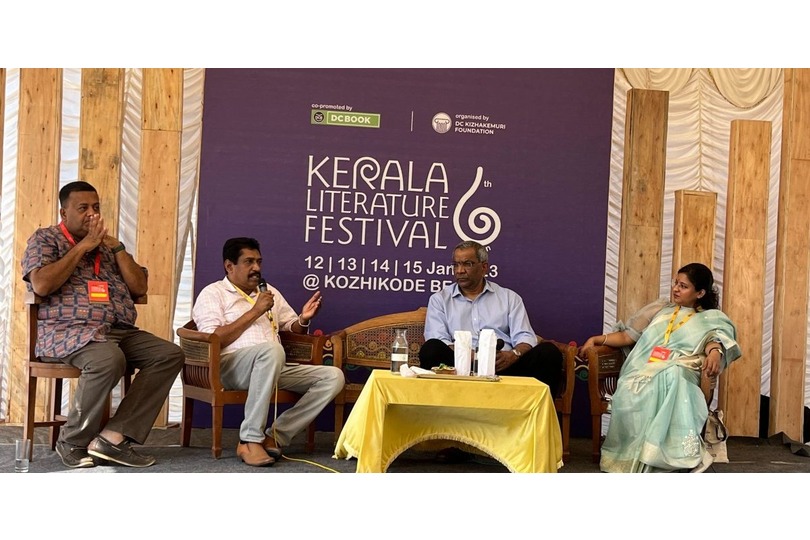The Translation Industry is Expanding in India
Language cannot grow in a vacuum," Goyal contended. "In order to communicate, it must learn and borrow from other languageson Jan 17, 2023

On the final day of the Kerala Literature Festival, Sunday (January 15), three publishers - David Davidar of Aleph Book Company, Aditi Maheshwari Goyal of Vani Prakashan, and Ravi Deecee of DC Books - and an author - V.J. James - discussed the ins and outs of publishing translations in India.
"India is one of the most interesting and challenging landscapes for publishing translations," Davidar said, "and this is due to the number of languages we have."
James, who writes in Malayalam but has had several of his books translated into English, said that having his work published in English gave him access to audiences he didn't think he'd have. "Social media has also played a role in increasing the popularity of translations. People will read a book and then post about it, which will pique the interest of others who may be living in different contexts." He believes that there is more cross-cultural reading because ordinary readers now have a place to discuss books with people from all over the world.
Goyal bemoaned the fact that translation networks do not exist in India as they should. Instead, informal relationships between people in the publishing industry often lead to books being translated, which may not be representative of all the books produced in the country.
vani Prakashan publishes in Hindi – both original work and translations.
"Language cannot grow in a vacuum," Goyal contended. "In order to communicate, it must learn and borrow from other languages." In a country like India, translation becomes critical. Unfortunately, no Europe-style model exists in the United States to streamline and bring together literature from various parts of the country. There are national organisations that were supposed to do this, but they are only serving as publishers."
She went on to say that there is no formula for discovering new books. "Discoverability is still a challenge; we rely on our friends and advisors. Something like a publisher's cooperative, which Ravi [Deecee] sir and I have been discussing, could possibly help smooth things over."
It is true, however, that the situation today is somewhat different, according to Deecee, because there is a growing interest in and recognition for translated works. "I was surprised by the JCB Award when it was first announced [which goes to Indian fiction written in English or translated into English], but fortunately our translators have lived up to the challenge - books written in English and translated into English can stand side by side. This has changed in the last five to ten years, as the industry has grown, so has the quality of translation."



.jpg)






.jpg)

.jpg)
.jpg)
.jpg)
.jpg)
.jpg)
.jpg)










Sorry! No comment found for this post.